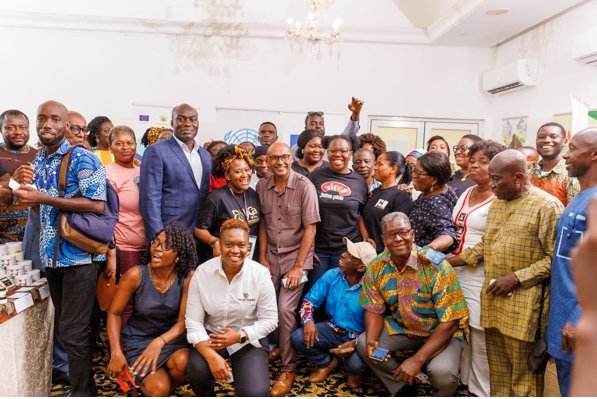The European Union (EU) Ambassador to Ghana, Irchad Razaaly, has announced that the European Union has provided a substantial contribution of approximately 75 million Ghana cedis, equivalent to £6.2 million, to the West Africa Competiveness Programme (WACOMP) Ghana.
The funding aims to enhance the competitiveness of Ghana’s exports and support sustainable production and processing within the country. The overarching objective is to facilitate better access to regional and international markets. The EU’s investment will focus on key value chains such as tropical fruits (mango and pineapple), cassava, and shea butter, which are vital for Ghana’s export industry.
During the WACOMP Ghana SMEs Product Exhibition, Ambassador Razaaly emphasized the significance of the program as an opportunity to showcase the success stories of Ghanaian small and medium-sized enterprises (SMEs).
He highlighted the importance of the targeted value chains, which are crucial exports for the country. The WACOMP initiative aims to strengthen the competitiveness of West African products and promote the integration of ECOWAS countries into the regional and international trading system, including the African Continental Free Trade Area (AfCFTA). Ambassador Razaaly emphasized the role of SMEs as a driving force in transforming Ghana into a continental economic and trade hub.
The Chief Director of the Ministry of Trade and Industry (MoTI), Patrick Yaw Nimo, expressed his enthusiasm for the WACOMP program, which has particularly impacted the lives of women, who are not only consumers but also significant producers of the targeted products. He urged beneficiaries to continue their production efforts and encouraged them to expand their market reach into other African countries. Director of Development Services of the Association of Ghana Industries (AGI), Johnson Opoku-Boateng pledged AGI’s support to the 57 SMEs benefitting from the project and urged them to seek assistance from AGI to improve their businesses.
The WACOMP Ghana SMEs Product Exhibition showcased the achievements of SMEs from various regions of Ghana, including Accra, Tamale, Bolgatanga, and Kumasi. The exhibition focused on three main value chains: cassava and derivatives, fruits (mango and pineapple), and cosmetics and personal care. The showcased products included soaps, lotions, shampoos, black soap, oils, fruit juices, dried fruits, jams, chutneys, cassava flour, gari, ethanol, starch, and more. Vinolia Emma Zigah, Chief Executive Officer of Vinolia Worth Enterprise, highlighted the project’s benefits, including capacity building, product registration support, and access to equipment.
As the project concludes, she plans to utilize the acquired machinery to expand her business, diversify her product offerings, and create employment opportunities, particularly for women, to address the country’s unemployment challenges.
WACOMP is a collaborative initiative between the Economic Community of West African States (ECOWAS) and the European Union. The program is implemented by the United Nations Industrial Development Organization (UNIDO) in coordination with the Ministry of Trade and Industry (MoTI). Its primary objective is to enhance Ghanaian export competitiveness by adding value, promoting sustainable production and processing, and increasing access to regional and international markets.






























































